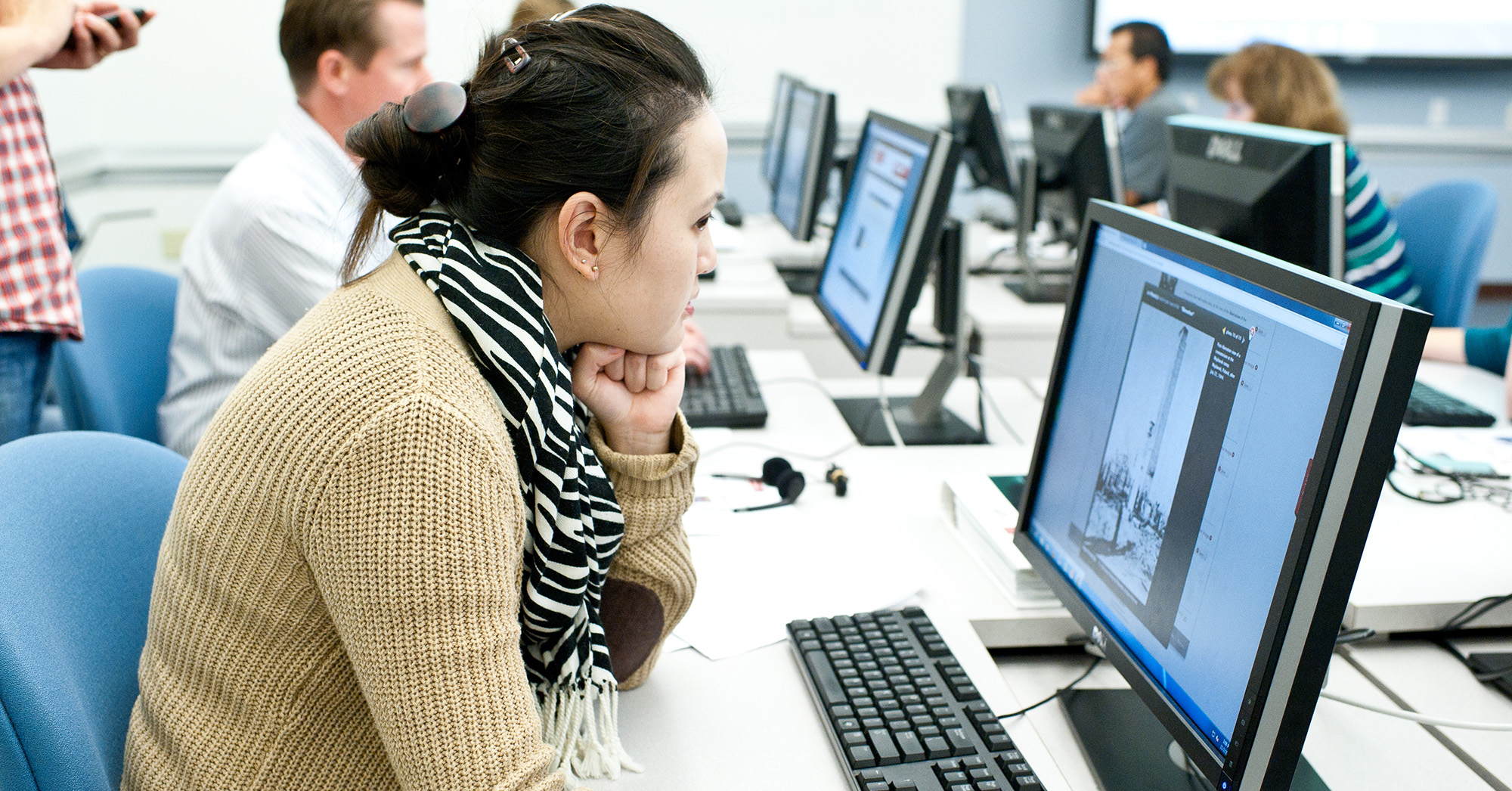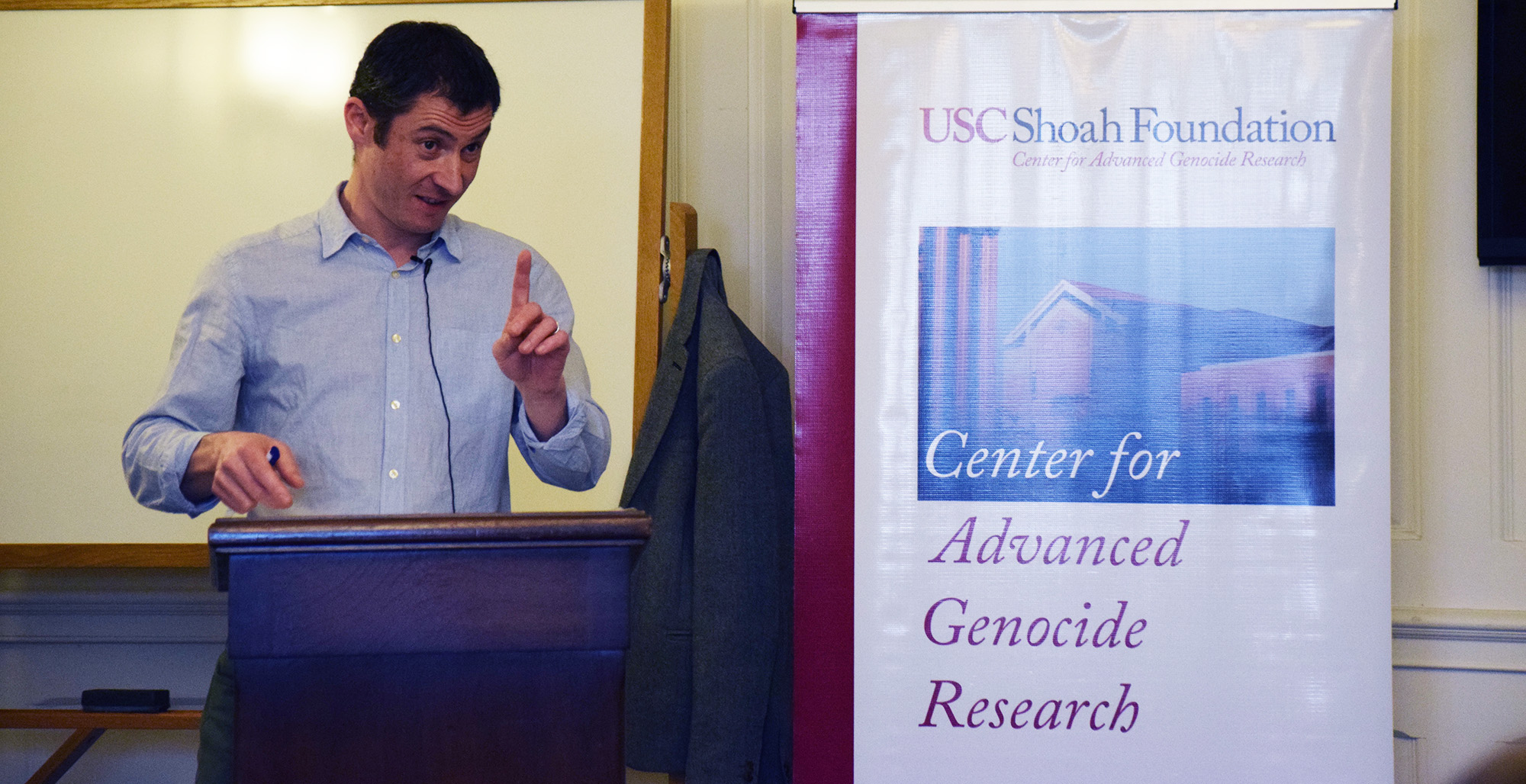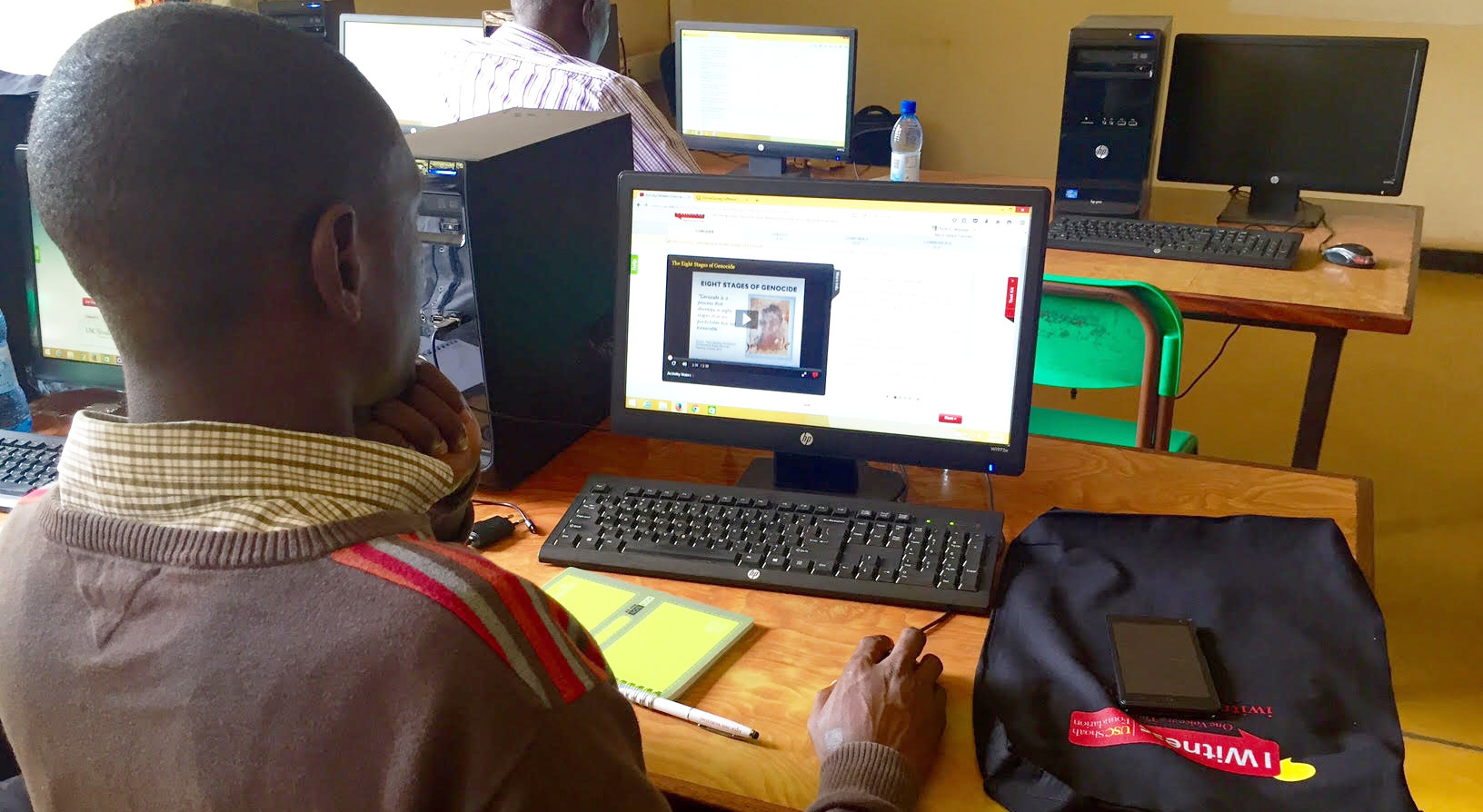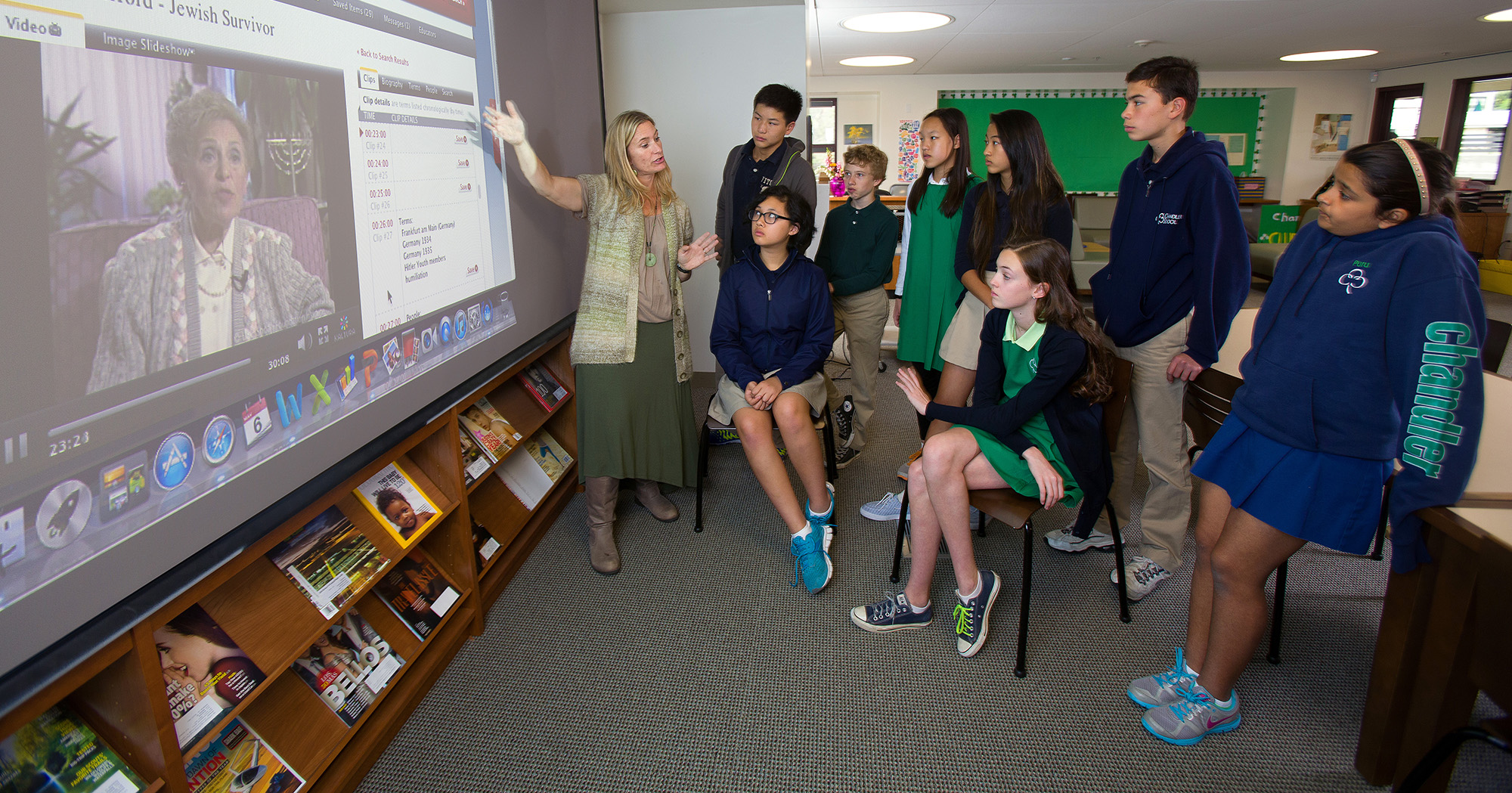News for 2016
April is Genocide Awareness Month, a time to reflect on atrocities of the past while ensuring that we avoid acts of mass murder in the future. The urgency of this mandate was highlighted just weeks ago when the U.S. House of Representatives and the State Department officially recognized that ISIS is committing genocide in the Middle East.
/ Friday, April 1, 2016
USC Shoah Foundation partner Echoes and Reflections is launching a three-week online professional development webinar series for educators on Tuesday, April 4, 2016.
/ Thursday, March 31, 2016
Alina Bothe, PhD, the 2015-2016 USC Shoah Foundation Teaching Fellow, gave a public lecture at the USC Shoah Foundation Center for Advanced Genocide Research focusing on the way users experience and relate to the testimonies in the USC Shoah Foundation Visual History Archive.
/ Thursday, March 31, 2016
This year I focused on eyewitness testimony to the Holocaust and it changed the experience for my students and for me.
/ Thursday, March 31, 2016
In his lecture at USC Shoah Foundation Center for Advanced Genocide Research March 29, Professor Dan Stone offered a global perspective of the origins and history of concentration camps.
/ Wednesday, March 30, 2016
At a training led by USC Shoah Foundation education staff, Rwandan teachers learned how to build IWitness activities and incorporate IWitness into the new Rwandan national curriculum.
/ Tuesday, March 29, 2016
I attended the event “Melodies of Auschwitz” at the Willard Intercontinental Hotel in Washington D.C. on Thursday, March 10, 2016, hosted by PNC Bank to recognize USC Shoah Foundation for its work in genocide education and preserving testimony of genocides around the world. The event was educational and meaningful, bringing together PNC clients, employees, and all other guests into a conversation about the importance of preserving testimony and what USC Shoah Foundation is all about.
/ Tuesday, March 29, 2016
IWitness has added another update to help users more easily discover new content on the site.
/ Monday, March 28, 2016
The question “How do you teach this stuff?” is what brought me to USC Shoah Foundation in 2010 to begin my training and work as a Master Teacher. I was beginning to understand that survivor testimony is the formative center of Holocaust education, that once a student begins to see Holocaust education content through the lens of testimony, the education and the student begin to change in ways that are profound.
/ Friday, March 25, 2016
Never forget. Never again. These are common phrases used in Holocaust and genocide education. These are important statements especially when they evoke the real reason to study, learn, and teach about genocide. We must bring this content to students to empower them and encourage them to see beyond themselves. If done right, students become aware of the steps that lead to such atrocities. Teaching about genocide is the only way to have a lasting impact on our students, to affect their worldview, to help them understand that they can make a difference.
/ Friday, March 25, 2016



